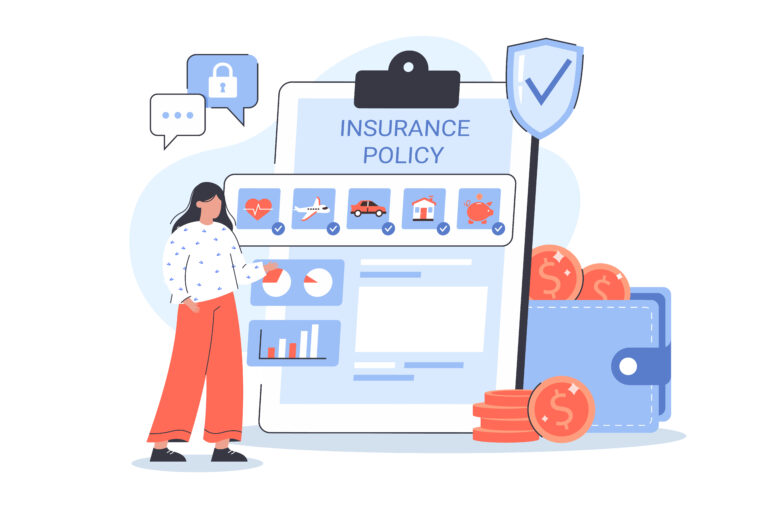Insurance services play a critical role in our lives, providing a financial safety net against unforeseen events and offering peace of mind. Whether it’s protecting your health, home, car, or business, having the right insurance coverage can make all the difference when life throws you a curveball. In this guide, we’ll dive deep into the different types of insurance services available, their benefits, and tips on selecting the best policies tailored to your unique needs.
Why Insurance Services Are Essential
Life is unpredictable, and while we can’t control everything, we can be prepared for potential risks. Insurance services help you prepare financially for unexpected events like accidents, illnesses, theft, and natural disasters. By paying a premium, you’re essentially safeguarding yourself and your loved ones from significant financial loss and ensuring that you can maintain your standard of living even in difficult times.
Insurance isn’t just a legal or financial requirement in many cases; it’s also an essential part of risk management, whether for individuals or businesses. Insurance can provide a variety of benefits, from covering expensive medical bills to reimbursing losses in the event of a car accident or property damage.
Types of Insurance Services You Need to Know
There’s a wide variety of insurance services tailored to different aspects of life and business. Let’s break down the primary types of insurance available and what they cover:
1. Health Insurance
Health insurance is one of the most common and vital forms of insurance. It covers medical expenses for illnesses, injuries, surgeries, and even preventive care like vaccinations and check-ups. Health insurance plans can vary significantly based on coverage, including options for basic health insurance, comprehensive coverage, and specialized plans like dental or vision insurance.
Key Benefits: Health insurance minimizes out-of-pocket costs, covers prescription drugs, and can include preventive services. It’s crucial for managing unexpected medical expenses and is often offered through employers or purchased individually.
2. Auto Insurance
Auto insurance provides financial protection against damages and liabilities resulting from car accidents. There are different types of auto insurance, including liability coverage (required in most states), comprehensive coverage (covers non-collision incidents), and collision insurance (covers repairs or replacements after accidents).
Key Benefits: Auto insurance covers damages to your vehicle, medical expenses, and liability for third-party injuries. It’s essential for vehicle owners and is often legally required, ensuring that you’re financially protected on the road.
3. Homeowners Insurance
Homeowners insurance protects your home and belongings from damages caused by natural disasters, theft, and other covered events. Most policies cover the physical structure of the house, personal property, liability, and additional living expenses if you need temporary housing due to property damage.
Key Benefits: Homeowners insurance covers repairs, replacements, and liability costs associated with property damage or injuries on your property. It’s essential for homeowners to safeguard their most valuable asset – their home.
4. Life Insurance
Life insurance provides financial security to your loved ones in the event of your death. There are two primary types: term life insurance, which covers a specific period, and whole life insurance, which provides coverage for your entire life and includes a cash value component.
Key Benefits: Life insurance can cover funeral costs, replace lost income, and provide financial stability for dependents. It’s particularly important for those with families or dependents who rely on their income.
5. Disability Insurance
Disability insurance protects your income if you become unable to work due to an illness or injury. Short-term disability covers temporary disabilities, while long-term disability insurance provides income replacement over an extended period if you’re unable to return to work.
Key Benefits: Disability insurance ensures a steady income stream if you can’t work, helping to maintain your financial stability and support your family during recovery.
6. Business Insurance
Business insurance offers a range of protections for companies, covering liabilities, property, and even specific risks unique to certain industries. Common types include general liability, property insurance, workers’ compensation, and professional liability insurance.
Key Benefits: Business insurance protects against lawsuits, property damage, and business interruptions. It’s essential for companies to secure their operations and safeguard their employees.
How to Choose the Right Insurance Service for You
With so many options available, choosing the right insurance policy can feel overwhelming. Here are some key factors to consider when selecting an insurance service:
- Assess Your Needs: Start by evaluating what you need to protect, whether it’s your health, family, property, or business. Your priorities will guide the type of insurance you should consider.
- Compare Policies: Don’t settle for the first policy you come across. Compare different policies, premiums, and coverage limits from multiple providers to find the best fit.
- Check the Provider’s Reputation: Choose an insurance provider with a solid reputation for customer service and claims handling. Research customer reviews and ratings to get a sense of their reliability.
- Understand the Terms: Read the policy terms carefully. Understand what’s covered, the exclusions, and the claim process to avoid surprises later on.
- Consider Deductibles and Premiums: Look at the balance between deductibles and premiums. Higher deductibles can lower your premium, but they also mean more out-of-pocket costs if you need to file a claim.
The Claims Process: What to Expect When You File a Claim
Filing an insurance claim can be stressful, but understanding the process can make it more manageable. Here’s a general overview of what to expect when filing a claim:
- Report the Incident: Contact your insurance provider as soon as possible to report the incident. Provide all necessary details, including dates, locations, and any supporting documentation.
- Document the Damage: Take photos, gather receipts, and record any other evidence that supports your claim. Documentation will help the insurance adjuster accurately assess your claim.
- Work with an Adjuster: An adjuster may visit to assess the damage or review your documentation. Cooperate fully to expedite the process.
- Review the Settlement: Once the insurance company processes your claim, they will offer a settlement. Review the amount carefully to ensure it covers your expenses before accepting.
- Receive Payment: Upon agreement, you’ll receive the claim payout, either as a direct deposit or check, depending on your policy.
FAQs About Insurance Services
1. What is a premium?
A premium is the amount you pay to your insurance provider regularly to maintain your coverage. Premiums vary based on factors like coverage level, deductible, and your risk profile.
2. What’s the difference between term and whole life insurance?
Term life insurance provides coverage for a set period (e.g., 10 or 20 years), while whole life insurance covers your entire life and includes a cash value component that can grow over time.
3. Can I have multiple types of insurance policies?
Yes, most people have several insurance policies (e.g., health, auto, life) to cover different aspects of their lives. Each policy serves a specific purpose and provides targeted coverage.
4. How do deductibles work?
A deductible is the amount you pay out-of-pocket before your insurance kicks in. Higher deductibles typically result in lower premiums but require you to cover more costs upfront in the event of a claim.
5. Is business insurance mandatory?
Depending on your location and industry, certain types of business insurance (like workers’ compensation) may be required by law. General liability and other policies, while not always mandatory, are recommended to protect your business assets.
Conclusion: Finding the Right Insurance for You
Insurance services provide essential financial protection, covering almost every aspect of life, from personal health to business operations. The key to finding the right insurance is understanding your needs, researching providers, and carefully evaluating policy terms. By selecting the right coverage, you can secure a better future for yourself, your loved ones, and even your business, knowing you’re protected against life’s uncertainties.
Remember, choosing an insurance policy is a significant decision. Take your time, ask questions, and choose the policies that align best with your lifestyle, financial goals, and risk tolerance.

